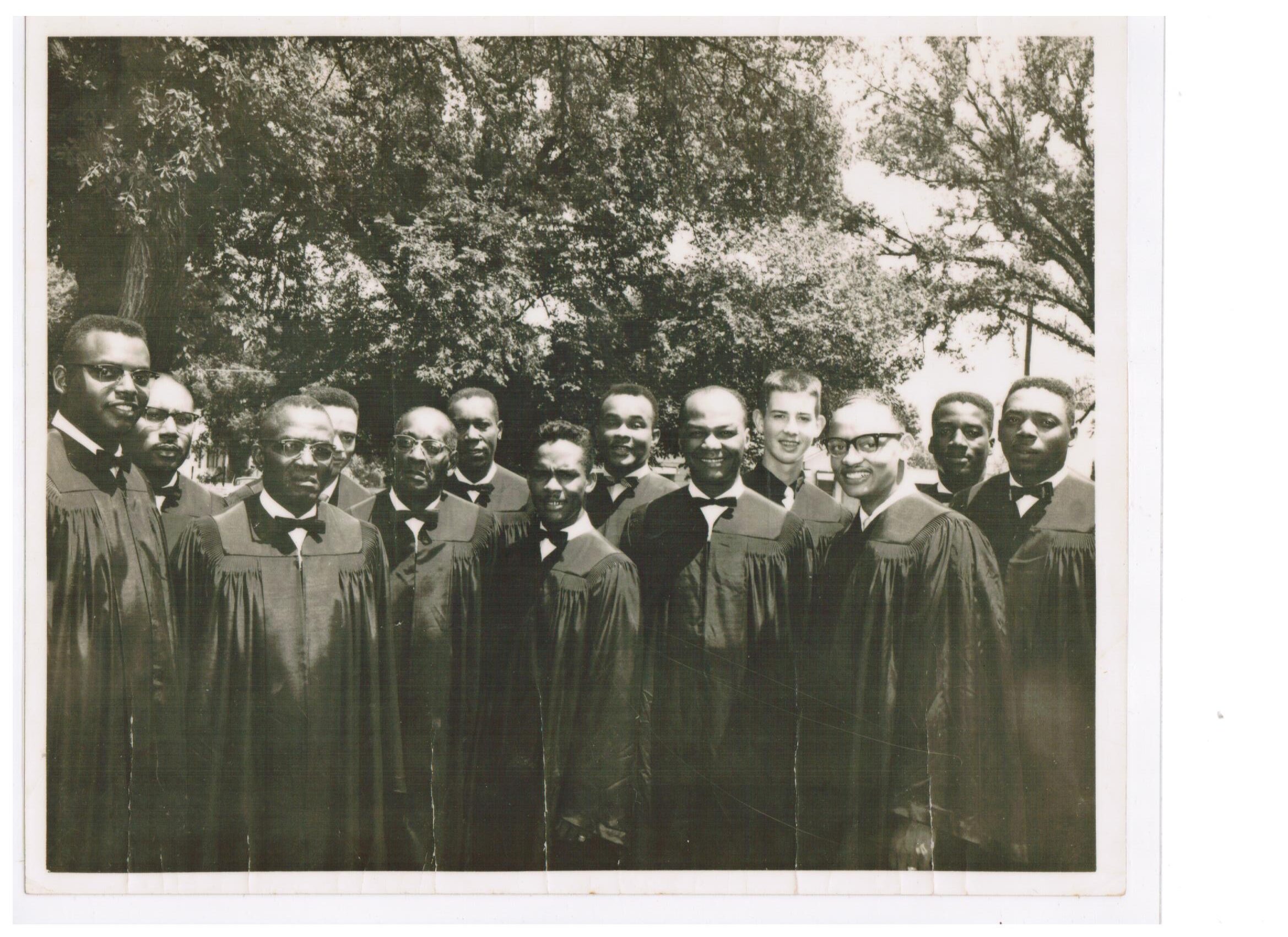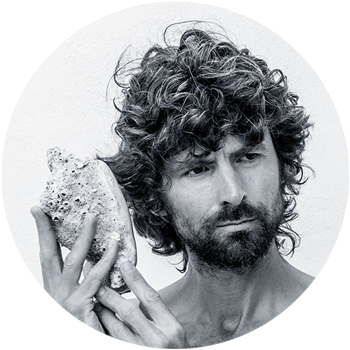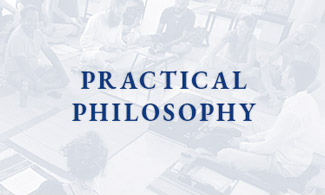
VIGNETTE: The Only White Boy in the Second Baptist Church by William S Whorton
The following VIGNETTE is one of the moving pieces of writing that my friend William S Whorton has shared with me over the last twenty-plus years of our friendship. We recently spoke about this Vignette and the richness and lasting impact of Bill’s experiences as the only white boy in the otherwise All-Black Second Baptist Church in our podcast conversation ‘On Enchantment and the Transcendent: the only white boy in the Second Baptist Church’, episode 18 of the WHOLE LIFE YOGA PODCAST. I hope you find Bill’s writing here as moving and inspirational as I do.
VIGNETTE: The Only White Boy in an All-Black Church in Junction City, Kansas 1957 – 1959.
By: Captain William S. Whorton, U.S. Marine Corps, Retired.
Dedicated to the Memory of: Pastor Peter H. Hamlin, Brother Willie Robinson, and Helen Whorton.
It was Sunday morning, late 1957, in Junction City, Kansas. I was walking home from visiting a friend in a part of town I had never gone. I was 16 years old. While walking by an old building, I was suddenly struck by powerful singing and piano playing coming from the building. I then recognized the building as a church. The music froze my body in place. I was stunned by the passion, power, beauty and rhythm of the music. Tears began streaming down my cheeks as the singing continued. I lost consciousness of ‘self’ in the music. Later, I understood that I had undergone the experience of ‘being moved by the Spirit’. While standing in this state at the base of the steps to the doors of the church, two black gentlemen dressed immaculately in cream-colored suits wearing white gloves opened the doors of the church and walked out. The opening of the church doors returned me to awareness. One gentleman asked me, “What can we do for you, young sir?” I replied by respectfully requesting their permission to stand outside the church doors and listen to the music. Their reply was, “You can hear the music more clearly inside.” I replied that my teenage attire of shirt, jeans, and sneakers were not appropriate for church. They said, “Please come in.” They led me to a pew and others made room for me to sit. Again, the music rolled over me and I could feel its power and effect on me and others. When the service was over, the Pastor, Reverend Peter H. Hamlin, told me that I was welcome to come anytime. I was made welcome by other church members. I was the only white person in the building.
When I got home I told my mother (Helen Whorton) what had happened. She was quite interested in my adventure. We had an interesting conversation about my emotional state regarding the music. Mom gave me permission to return to the church if I wished.
The next Sunday I returned to the Second Baptist Church. (Note: The First Baptist Church was all-white.) Everybody was very friendly and I felt welcomed during my visit. These weekly visits continued for about four months. At the end of this time Pastor Hamlin told me it seemed to him and other church members that I was comfortable with the church. He asked me if I wanted to make it my church home. I was not surprised by the invitation. I had had many friendly conversations with church members. Also, even though the only white person, I felt warmly at home as a guest in the church. I told Pastor Hamlin that I would have to discuss this with my mother and he shook his head in agreement.
Mom was not surprised when I told her what Pastor Hamlin had said. She asked me what I wanted to do because she knew my mind, as was hers, was then in a state of confusion regarding religion. Some background will help the reader understand what I mean by “confusion”.
When I was no longer considered a baby I was taken by mom to the (all-white) First Methodist Church every Sunday. Mom sang in the choir and went to Sunday School. Church going was part of our rhythm of life. Our first Minister, the Reverend Harry Weed, was a very interesting man. He was, I now opine (stress “opine”), a seeker of “GOD” as “THAT” (the Formless, Intangible, Universal Supreme Spirit, Creation Itself). He was neither doctrinaire in personal talks nor sermonizing. I remember his ‘pastoral visits’ to our house with open doors and windows along with two kids to (try to) protect against neighbors’ gossip. I now believe that both he and my mother were kindred spirits as “seekers” of “Truth”. I speculate that both would have been interested in what is called “Mysticism” —- in a spiritual relationship striving for union of individual ‘self’ with Universal Supreme Spirit which is intangible, inexpressible in language (“THAT”). Fate was unkind to Reverend Weed and my mother in several ways. First of all, this era was one in which few books on Mysticism or Eastern or Indian meditative thinking and religions had been popularized. Second, Reverend Weed was minister to a congregation composed of (overall) very nice, hard-working, and pragmatic Kansans who were quite certain about the Nature of God and Jesus. This era was one in which church doctrine, dogma and devotion dominated sermons. His congregation also had very definite beliefs about what the role of a Minister was in acquiring donations and funds for church development. Unfortunately, Reverend Weed was not as interested in making money nor building development as his flock believed he should be. His sermons made many in the congregation uncomfortable. He frequently visited poor people on the wrong side of the (railroad) tracks. He quietly exposed hypocritical piety and other social ills and behaviors in his sermons. He had to go. However, his “going” was handled in Kansas style with discretion and civility. In innumerable discussions with my mother about Reverend Weed and the church after his dismissal we agreed there were many different paths one could take in being a Christian. Unfortunately, in the case of Reverend Weed and his congregation, interpretations regarding the “Sacred” were too far apart. My mother and I agreed the mystical-minded do not share many common spiritual core values with the pragmatism of the business-minded.
When I hit 13 I became a militant atheist. William James would have called me a “True Believer in no-God”. At 13 I read three books which transformed my life and whose teachings and thoughts I have followed until today. I have written about this experience in a separate “Vignette” so here there will only be a repeat of what is essential from one of the books for coherency and understanding in this ‘Vignette’. William James’ THE VARIETIES OF RELIGIOUS EXPERIENCE is in my opinion the finest most accurate book on religion I have ever read. I make no pretense that at age 13 I had a deep philosophical understanding of this great work. However, through many discussions with my mother who loved the book, I understood the essence of James’ thinking. James believed religion is part of human DNA. From a religious point of view, the first instinct of all humans after birth is to ‘desire’ something. The second instinct of all humans after birth is to seek to fulfill that desire. Religion, being part of human DNA, causes us to desire some form of “God” and/or an Ideological Belief System to fill our particular “Lack” (of God/Ideology). The form(s) of God or belief system(s) will follow according to the culture born into and what each person’s individual temperament requires to fill that particular lack. As a 13-year old, that meant to me that the essence of religious belief was “Delusional” because there is no “Objective Truth”. Everybody is born into a particular culture. As humans we all have individual and different temperaments. Our individual temperaments have core values which become attached (by desire to fill a “Lack”) to different religions or belief systems. As James puts it some people have temperaments with core values to become happy atheists or happy Baptists or happy Zen Buddhists or happy communists or happy liberals etc. The trick, according to James, is to learn to know yourself sufficiently to understand which religion or belief system you should attach yourself to in order to make yourself with your DNA temperament happy. The key term James has for this is “cash value” i.e. what “works” for you. This is all quite “Pragmatic” and William James is (philosophically) considered to be one of the founding fathers of American “PRAGMATISM”. However, the immediate effect of James was to make me a short-term atheist. If all religions and belief systems are just different forms of delusions based in culture and individual DNA-born temperament and attachments based on merely personal wish fulfillment, then there is no objective Truth. With this emotional feeling about what I had just intellectually realized, I told mom that my church-going days were over. Mom agreed and then confessed to me that she had always admired William James and had forced me to go to Sunday School and church because she believed people who had some kind of (e.g. delusional) belief system or religion were happier than those without one. We continued our discussions and realized that we were not atheists because as James points out they can be just as fanatical in their beliefs as any other “True Believer”. We were not pure agnostics because we had a hope in our hearts that there is an Objective, All- Permeating, Spiritual Universal “THAT” —– Formless, Eternal, Changeless, Boundless in Space and Time. Both my mother and I were, in the realm of religion and belief, lost and confused but still passionate seekers. Seeking Spiritual Truth was, for both my mother and me, our Spiritual Reality. This was the reason she gave permission for me to become a member of the Second Baptist Church. I had been ‘moved by spirit’. This experience was concrete. Mom wanted me to take the opportunity to explore this path. It is important to note the personal and individual reason why I as a white boy entered an all-black church. I did not enter the Second Baptist Church for any reason connected with the burgeoning U.S. Civil Rights Movement or to further race relations among black and white people. I was on a religious search for Spiritual Truth only. I do not want to pretend to be connected with the very high honor of being part of the Civil Rights Movement when that was no part of my purpose in being the only white member of an all-black church in 1957 – 1959. I was taught by my mother to despise and have contempt for “Stolen Valor” and those who seek it.
I was on an individual spiritual search for Truth. However, both my mother and I lived in a small community. In such a community there are no secrets. Gossip is natural and permeates the community. We even shared telephone party lines for a number of years. I state for record that if my mother and I had felt any fear of suffering social ostracism by my entering an all-black church, she would never have allowed me to enter, nor would I have wanted to join the church. Mom and I knew there would be a great deal of community gossip about my becoming a member of the Second Baptist Church. There would be focus in local gossip on the unusualness and strangeness of such behavior. However, we both felt strong confidence we knew and understood our Kansas culture. In our Kansas culture (in this era) this kind of “strangeness” would be okay. Kansas culture in that era was incredibly ‘open’. An example of this is around 1959 (not sure of year) San Francisco “Beatniks” decided they would come to Hutchinson, Kansas, home of my grandmother, and “Liberate” it. Hutchinson people welcomed the Beatniks in a very friendly way, listened to their music and poetry, and fed them delicious Kansas food. Everybody had a good time. The local press, after the events concluded, wrote and wondered about who had “Liberated” who. This was the ‘Kansas way’ in that era. Mom and I were not worried about social ostracism.
I became an official member of the Second Baptist Church on March 9, 1958. My baptism in the church is one of the unforgettable times of my life. I brought a separate suit of clothes because Baptist baptism demands full immersion in a pool of water. There was a small but quite deep pool in the church. Four older ladies dressed in white escorted me to the pool in which waiting for me was Pastor Hamlin. In the church marched the Men’s Chorus singing “Wade in the Water”. I have never in my life heard such incredibly soul-lifting, powerful and beautiful singing. The music tore my heart to pieces. I came very close to fainting from having an out-of-body experience. Pastor Hamlin understood my state and gave me the baptismal blessing and the shock of the freezing water brought me ‘back’ to awareness. The situation was a joyous one and was shared by many members of the church. I was officially the only white member of an all-black church in Junction City, Kansas.
The Second Baptist Church had three choirs: The Men’s Chorus, the Adult Chorus, and the Senior Choir. After my baptism I received invitations to join the Men’s Chorus and Adult Chorus. I speculate that these invitations were offered because it was obvious that I was deeply moved by the spirit of the music. I joined both chorus groups even though my singing voice was uniquely horrible. Over time, with practice and help, I became able to moderate the croaking of my singing voice by ‘talking’ the words. I always felt it was notable there were other chorus members who sang as poorly and off-key as I did but all were welcome and treated equally. However, we had wonderful singers. There were Brother Ivory Terry, Brother Lee Gage, and Brother Robert Crawford. At 80 the pure beauty of Brother (First Sergeant) Stevens singing “IN THE END” still haunts me. Our Men’s Chorus was popular because when we sang we ‘moved the Spirit’ of the people. I note we were invited to sing in black churches all over the state of Kansas.
Being ‘moved by the Spirit’ is very unique human religious experience. One sees it in many evangelical and charismatic churches. When our Men’s Chorus sang in our church and other places it would be quite common to see a nurse in uniform in attendance. Our singing would cause a ‘moving of the spirit’ such that some church members would be dancing in uncontrollable ecstasy. Other church members’ bodies would freeze. Others would speak in tongues. I have seen tiny elderly ladies require as many as six very strong men to gently control their movements when they were ‘moved by the spirit’ so they did not harm themselves or others. In my case it was always an uncontrollable river of tears streaming down my cheeks sometimes accompanied by a loss of consciousness of ‘self’ in pure joy or rapture.
Our Adult Chorus was a mixture of men and women. A number of the singers in the Men’s Chorus also sang in the Adult Chorus. Two female singers in the Adult Chorus, Sister Mitchell and Sister Geraldine Turner had particularly beautiful, gorgeous voices. Sister Mitchell could hit high notes that I have only heard from great professional singers. Sister Turner’s voice was soft with the ability to sing in a ‘blues’ manner that was deeply moving especially with the older spirituals.
Our Choirmaster, Brother (Sergeant First Class) Willie Robinson, was a truly great musician. He was our choir leader and perfectionist-in-chief. His piano playing artistry was astounding. He knew music and choirs from his previous church in Gary, Indiana; and, I assume, numerous other entertainment venues I will not speculate on. Brother Robinson was an U.S. Army Sergeant First Class whose duty was being Chief Steward to the Commanding General of Fort Riley, Kansas. He was an extremely intelligent man of many skills. However, he was our chief and knew exactly what he wanted. I will not pretend there were no personality clashes in both the Men’s and Adult Choruses. There was conflict. However, at the conclusion of each conflict there was resolution in the form of victory for Willie Robinson. We all respected him greatly and he drove himself and every member of both choruses to the best each was capable of achieving. Every member of both choruses had their own song that they, without exception, were required to perform during church services either at home services or at other churches. My song was “Heaven’s So High”. Brother Robinson taught me how to mitigate my croaking voice and smooth it out in the form of a ‘singing speech’. My song was one in which when things got bad for me the choir would come in and back me up. Singing a solo as a white boy in a black church was definitely an unusual experience!
The Senior Choir was different. As “Senior” being elderly was a requirement. I remember Brother (Deacon) Bridgeforth and Brother (Retired Master Sergeant & Deacon) Harvest Webb. These ladies and gentlemen sang more traditional music —- but not always. I can remember times when they sat in total silence. Then, the sound of a moaning chant arises from one member. This is followed by a joining moan and chant. By this time the hair on the back of my head is at attention and there are goose bumps on my arms. Then an old spiritual is sung in a way no younger group of people could sing the same song. My spirit would be ‘moved’ again!
The ‘Race Relations’ issue was frequently and openly discussed. I discussed race relations frequently with my mother and fellow church members. It was then, as now, a very relevant and important subject of discussion. I will make some observations and personal opinions regarding this point. I stress that my personal observations and opinions are just that —- ‘personal’ and ‘opinion’. There is no pretense here of writing something intellectual or academic. My experiences are personal and based on my interactions with concrete people and how I interpreted those experiences. However, I note there is a big difference in interpreting at 16 – 17 and age 80. Therefore, there will be occasions when I specify time of holding an opinion if I deem it important to the context.
When I officially joined the Second Baptist Church in 1958 the U.S. Civil Rights Movement as we understand it today was just beginning. The overwhelming mantra of the time was, “Separate but Equal”. Mom and I agreed in our discussions that to be born black was unlucky. Mom made me aware that because I had been born male I was luckier than she. (That is: I was born twice-blessed because I had been born White and Male. The “Gay” issue was, at that time, outside anybody’s thinking regarding ‘Civil Rights’.) We agreed that “Separate but Equal” was merely hypocritical code for “Separate and Unequal”. The reality of the time was blacks were second-class citizens. Probably, in “reality”, third-class citizens because women then were widely, socially thought of as the ‘weaker sex’ or, ‘second sex’ and unequal to men. The black church members were quite direct with me regarding their feelings of unhappiness regarding racial injustice. This was especially true because many of them were retired soldiers or still serving on active duty. Feelings of church members regarding racial injustice could be quite direct. After my baptism I was informed by one elderly lady that she was happy to see my baptism “because so many of your race are going to Hell”. I thanked her for her kind thought. I note that not once did I ever feel any personal racial animosity towards me in any form at my church or any other black church I visited. Also, in my old age and with all the different changes and movements within U.S. culture I can see a clearer picture of the thinking of that era (1957 – 1959) as it existed in Junction City, Kansas.
I now see that Junction City was a unique community. The U.S. cultural bombshell in 1954 of BROWN VERSUS BOARD OF EDUCATION had no effect in Junction City because I have a 1946 Kindergarten Class picture showing my school chum Leon Chaves who is black. Junction City schools were already integrated. In stores and on streets one could see black men with white wives or white men with Chinese, Filipina, or Japanese wives. Junction City was near Fort Riley, home of “THE BIG RED ONE” (1st Infantry Division). The white women with black men were always German or French. This era was after World War 2 and it was natural that military occupation forces would meet and marry local ladies. This was acceptable. However, it would have been a social taboo for a black soldier to court a white local girl. It would have been equally taboo for a white boy to date a black girl. No local black girl would be seen socially in a public area alone with a white boy. “Separate but Equal” was the operational fact of life. Movie theatres were racially open but there were informal but socially enforced seating areas. Business relations between races were friendly. For example, the Hammond family, led by Paul Hammond, was very prominent and written about in the local paper. All this today seems quite “racist”. However, the goal during that era for Junction City was HARMONY. Nobody, black or white, wanted racial problems. I now can see that there was a lot going on behind the scenes in community communication between prominent members of the black community and the white business community. One issue stands out. I remember one summer there were no blacks in our very large public city swimming pool. The following summer there were black people swimming in the pool. Later, a distant relative, very active in local and state politics, told me what had happened. That is, leaders in the black community told leaders in the white community they wanted to see the swimming pool desegregated. They correctly pointed out that their tax money also paid for the community pool. The white business leaders disagreed. The black community leaders went to the Commanding General of Fort Riley with their petition saying his black soldiers could not swim in the local pool with their families during off-duty time. Then, the Commanding General reminded Junction City business leaders that he could make Junction City off-limits to his soldiers. Junction City business leaders immediately saw their way to welcome black citizens to the public swimming pool. The social harmony of the times was a mixture of “let’s be nice” and money. Thus, the pragmatism of the era. This is the world I grew up in.
During this time, I became aware of the word and idea “paradox” as it related to my observations and opinions relating to race relations. I am sure this word came from my mother during discussion. This paradox is: Even though church friends saw and felt the injustices of their third-class citizen status they loved America and were very patriotic. Even though their present reality was to be third-class citizens they believed through hope that the future would become better for them regarding full equality and justice. In my discussions with them they focused on what I will call “incrementalism”. That is, little-by-little and step-by-painful-step, conditions between the races would improve to eventually realize full equality. The above-mentioned ‘swimming pool’ incident would be such an example. Thus, paradoxically, on one hand my church friends were incredibly strong and stoic in their suffering and enduring many injustices; while, on the other hand, they were simultaneously optimistic and hopeful that equality would eventually come. Perceiving this paradox caused me to further and more deeply respect the nobility of character I saw in church members.
“Tough” is a word I believe very appropriate to describe my fellow church members, both men and women. All were used to lives of toil and hard unrelenting work. For example, after my baptism I shook the hand of Brother (Deacon) John Myricks, a very old but incredibly spry retired soldier from “the old Cavalry”. After Brother Myrick grasped my hand I screamed in agony. My right hand felt crushed. My hand felt as if it had been seized by a machine built to crush steel. I did all I could to ease Brother Myricks’ dismay at the pain I felt. His hands, I saw, were tougher than the toughest leather. In old age he had a physical strength that I would never attain during my active-duty military life. Pastor Hamlin, along with a number of other older members, had the same kind of great physical strength. A member of the Men’s Chorus, an old gentleman who spoke with difficulty, had terrible scars all over his head. I was told he had spent many years on a southern chain-gang and terribly beaten. A few much younger soldiers, church members I talked with, had been big city gang members and told to join the Army or go to jail. The church ladies were also “Tough”. Some were housewives but many worked. Some through education and professional competence rose to high administrative positions at Fort Riley. Sister Geraldine Turner was such a person. My mother sent me articles from our local paper regarding her professional achievements at Fort Riley. In April 1966 when I was home on “Basket Leave” after being wounded in Vietnam I went to an office at Fort Riley where a church ‘sister’ fixed me up with a disbursing record so I could be paid while at home. All church members were incredibly kind, friendly and helpful to me. In May 1959 I was 17. I graduated from high school and enlisted in the U.S. MARINE CORPS. I moved from one religious venue into another!
LOOKING BACK: I now understand that my passing by the Second Baptist Church that Sunday in 1957 was one of the luckiest and most auspicious events of my life. The key was the tears uncontrollably running down my cheeks caused by ‘being moved by the Spirit’. There were two aspects of ‘being moved by the Spirit’ that were first experiences in my young life. This was my first Transcendental Religious Experience of being lost in “No-Words”. The tears streaming down my cheeks were concrete. These tears were a fact —- a reality. These tears were an effect. I was old enough to understand that every effect is the result of a cause. Being lost in “No-Words” meant I had no verbal or rational coherency, consciousness, or understanding that could explain the cause of my tears. I was lost in the Transcendental Experience of “No-Words”. At the same time, I was lost in “No-Words” I had an out-of-body experience in which I no longer experienced my conscious “self”. There was a consciousness of “Joy” without attachment to any object or thing or person. This experience, I repeat, was an “effect”. Every effect has cause or causes. This “effect” created a realm of conundrum and mystery for me because “cause” was in a realm of “No-Words” and “No Ego-Form-Self” (the realm of no “I”). After this, when striving to self-replicate similar Transcendental experiences, I took many wrong paths trying to realize this Transcendental Realm by my own efforts. However, I had neither the teachers nor the wisdom and understanding to realize the path to Right Knowledge. Because I had an aggressive nature, I tried to ‘attack’ the conundrum/mystery’ by studying books and holding discussions to attain ‘Victory’. I was always defeated in my seeking and studies. However, I am attached to books and study so fell in love with the process of seeking and searching for “Truth”. I now look back on that time with great affection. In another ‘Vignette’ I will examine in much greater detail the mistakes I made during that time; and, following that time.
Because “Race” is such an important problem, it may be useful to conclude with a personal observation on this topic. I learned a lot by being the only white boy in an all-black church. I learned it was better to travel alone when entering a community of a different race or culture. You learn to act on your own and accept personal responsibility for everything you do. There is an awareness that there is nobody else to team up with or help. You learn how to get knowledge and wisdom from those whose culture you have entered. I learned that black culture is different from white culture. However, while living in this black community I would adapt to their culture and rules, not behave by mine. Culture and community are “Objective Realities” NOT “Subjective”. In this black community, “I”, “Me”, and “My” as a white boy, had no importance or relevance. I would do things their way —- not mine. For example, I would sing a solo during church services no matter how personally embarrassed or humiliated I felt. Singing a solo was required by all chorus members. I would conform to the rule or leave. I learned that I would never be “black”. My white skin would never change its color. This meant I could never be “black” or live as if I were black. I would never “act black” because that would dishonor myself and my black friends. No black person would ever accept me as being “black”. I learned how black people suffered from the systemic racism in the U.S. and world’s societies. I learned that the highest honor I would ever achieve in my life was to be accepted as ‘being an honored guest’ by people of all classes from different races and cultures. I have been so accepted in this way by (U.S.) Black, Chinese, Japanese, Thai and Vietnamese races and cultures. One other thought and feeling needs writing.
I left the Second Baptist Church at the end of May 1959 at age 17 to enter the U.S. Marine Corps “Boot Camp” at San Diego. It was the beginning of my new spiritual and professional life. “DUTY” as the Essence of Professional Soldiering, not music, would become my new Spiritual “THAT”. I left the Second Baptist Church physically at 17. However, at age 80, I can say, in a Spiritual sense, the church never left me. The Second Baptist Church gave me two Transcendental Awakenings. One such Transcendental “Awakening” was ‘being moved by the Spirit’. The second Transcendental “Awakening” was, in True Friendship there no race, class, status or gender. Now, at 80, I can still “see” my church friends; I can feel the warmth of their friendship; I can hear the music; the tears are streaming down my cheeks and I am ‘moved by the Spirit’. (End)
The podcast conversation with Bill that refers to this Vignette is available here on YouTube: https://youtu.be/I7bQagKMW9Y
And is episode 18 of the WHOLE LIFE YOGA podcast with James Boag on buzzsprout, spotify and apple podcasts.

James Boag | Whole Life Yoga
The yoga of the whole human being. Practical philosophy, storytelling, movement, inquiry, looking in ways that reach beyond our habitual ways of looking.
Listen to James’ unique whole life yoga perspectives on the WHOLE LIFE YOGA podcast.











